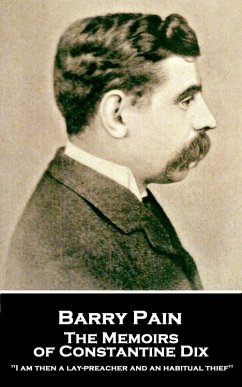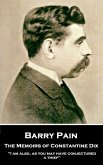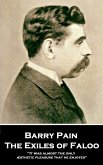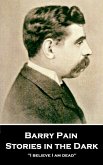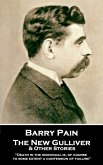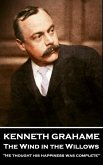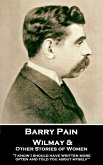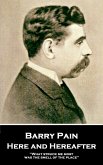Barry Eric Odell Pain was born at 3 Sydney Street in Cambridge on 28th September 1864. He was one of 4 children.
He was educated at Sedbergh School and then Corpus Christi College, Cambridge where he read classics and contributed to and edited Granta.
Four years of service as an Army coach followed before he moved to London. In 1889, Cornhill Magazine published his short story 'The Hundred Gates'. This opened the way for Pain to advance his literary career on several fronts. He became a contributor to Punch and The Speaker, as well as joining the staff of both the Daily Chronicle and Black and White.
In 1897 he succeeded Jerome K Jerome as editor of To-Day but still contributed regularly, until 1928, to the Windsor Magazine.
It is often said that Pain was discovered by Robert Louis Stevenson, who compared his work to that of Guy de Maupassant. It's an apt comparison. Pain was also a master of disturbing prose but able to inject parody and light comedy into many of his works. A simple premise could in his hands suddenly expand into a world very real but somehow emotionally fraught and on the very edge of darkness as many of these short stories demonstrate.
Despite applying his talents to several genres and forms today Pain is more readily thought of, especially during the first decade of the 20th Century, as perhaps the leading British humorist of his day. These stories reveal a darker side and beg to differ.
He was educated at Sedbergh School and then Corpus Christi College, Cambridge where he read classics and contributed to and edited Granta.
Four years of service as an Army coach followed before he moved to London. In 1889, Cornhill Magazine published his short story 'The Hundred Gates'. This opened the way for Pain to advance his literary career on several fronts. He became a contributor to Punch and The Speaker, as well as joining the staff of both the Daily Chronicle and Black and White.
In 1897 he succeeded Jerome K Jerome as editor of To-Day but still contributed regularly, until 1928, to the Windsor Magazine.
It is often said that Pain was discovered by Robert Louis Stevenson, who compared his work to that of Guy de Maupassant. It's an apt comparison. Pain was also a master of disturbing prose but able to inject parody and light comedy into many of his works. A simple premise could in his hands suddenly expand into a world very real but somehow emotionally fraught and on the very edge of darkness as many of these short stories demonstrate.
Despite applying his talents to several genres and forms today Pain is more readily thought of, especially during the first decade of the 20th Century, as perhaps the leading British humorist of his day. These stories reveal a darker side and beg to differ.
Dieser Download kann aus rechtlichen Gründen nur mit Rechnungsadresse in D ausgeliefert werden.

